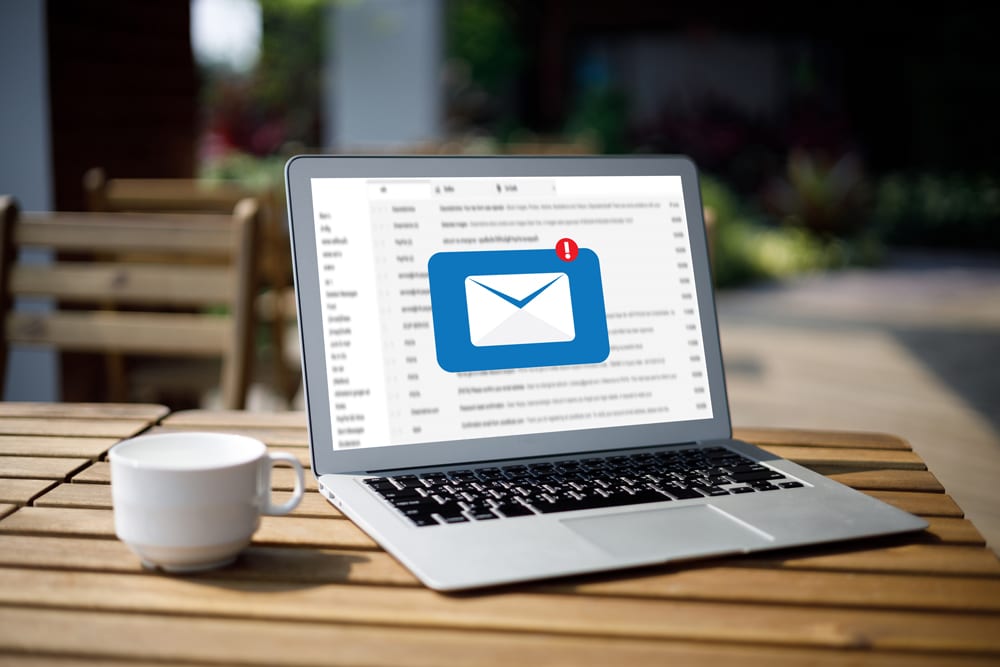Emailing is one of the most common ways that we now communicate with each other. Not only that but emails are used for a number of things such as transactions, online shopping, account creation, verification, job applications and more. For this reason, email security is a crucial consideration in businesses.
As emails are so commonly and widely used by a vast majority, they pose a real cyber risk if not adequately protected. Emails are essentially a goldmine for hackers, they hold masses amount of sensitive information that can be easily exploited if you don’t take the right cyber security precautions. Exploitation can also occur if you don’t have Cyber awareness on Email security. This is something that every IT Support Provider should emphasise to their customers.
In this blog, we will be discussing four ways that you can add cyber security to your emails to help protect your data.
Strong password
For most people, the biggest downfall of their cyber security comes down to a weak password.
To ensure that your password is strong make sure to include the following:
Good practice also includes using a unique password for all of your accounts. That way if one of your passwords becomes compromised, the hacker will not be successful in gaining access to your other accounts as none will share the same password.
Two-factor authentication
This is a great way to add an additional layer of cyber security to your emails. It creates a barrier between a successful login attempt and access to your account.
Should the cyber criminals crack your password, they will have a hard time proceeding to view your personal information if you have two factor authentication setup. This may require verification from a text message or a secondary email address.
It’s always good practice to use a secondary phone number or email address that no one but you have access to. That way you can monitor your account’s cyber health and act accordingly if a suspicious attempt has been made to try to gain access to it.
Don’t click on suspicious links or downloads
Cyber criminals will try to tempt you into downloading malware through ‘legitimate-looking’ emails. They may impersonate someone that you trust and have shared past interactions with such as a close colleague or your manager.
The bottom line is that if someone is requesting personal details about you such as bank details, passwords, credit card information etc., do not reply with that information. Instead either visit that business or individual in person or call them and ask whether that was an email sent from them.
Most businesses will not request confidential information via emails as it is not a secure way of handling data. However be wary of scam calls too, it is always safer to go and speak to someone in person at their legitimate premises to ensure that your data will not be exploited or compromised by malicious individuals, rather than taking the risk of sharing your information through an email or a call.
Don’t save your passwords in your browsers
Certain browsers, like Google, give you the ability to save your login details inside of its web browser. It then stores those details for the next time that you need them.
This may initially seem like a practical way to store and access your details in a quick and easy way, but it isn’t the most secure.
The way in which this process works is that the next time you open a sign in page, the browser will list all of the saved email addresses and passwords that are associated with that specific page.
However if your device gets stolen or your browser becomes compromised, you risk your data being easily accessed by an unauthorised individual.
Why stop there?
Congrats! You now know 4 efficient ways to protect your email account and inboxes from potential Cyber Attacks, but why stop there? We can offer several solutions when it comes to Email Security, IT support and more.
Emails are a popular method of communication and are used for both personal and professional reasons.
On average each user sends 40 emails and receives 121 every day (Templafy). With so many back and forth emails being sent every day, it is likely that many will include sensitive information that you wouldn’t share with a complete stranger. This is why it is so crucial that you take all of the necessary precautions to up your email cyber security and protect your personal information.

